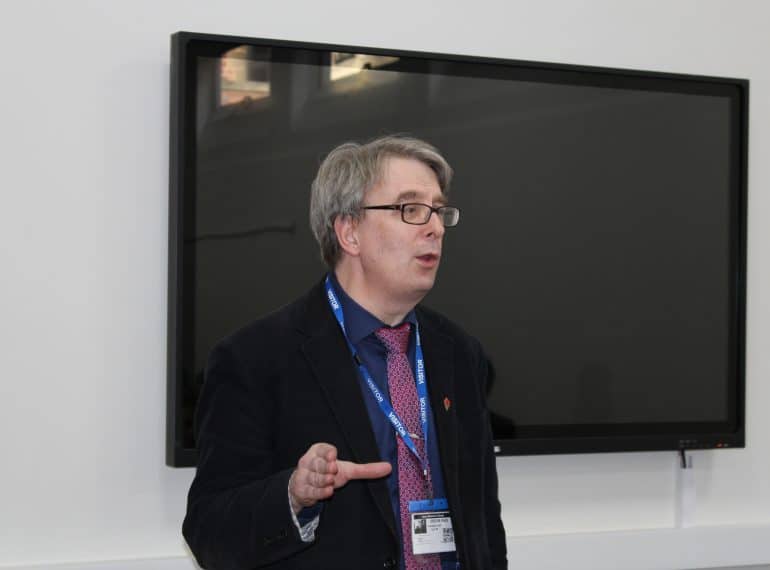
It was standing room only in the Conference Centre when Mark D’Arcy, the BBC’s Parliamentary Correspondent, gave a talk to the Politics Society.
With boys eager to hear an inside view on the political machinations surrounding Brexit, Mr D’Arcy’s lecture proved a significant lunchtime draw.
Mr D’Arcy who has been a correspondent for Today in Parliament since 2002 and presents BBC Parliament’s political review show, Book Talk, covered the biggest issues of the day in Parliament. He talked about Brexit in depth, touched on how Parliament operates and shared his own experiences as a journalist.
His career has included stints at LWT’s Weekend World and the Leicester Mercury. Since joining the BBC he has also produced, and occasionally presented, Radio 4’s The Westminster Hour.
He told the boys that politics had not been “normal” over the last two years: “It is unusual that you have Cabinet ministers threatening to resign, or actually resigning, almost daily. Politics used to be boring!”
Politics was now split into Brexit and ‘everything else’, including all the usual big issues such as the NHS, housing and education. He added that dealing with Brexit is very complex: “Because of how closely we have been integrated in a whole range of areas over decades, it will take some time to establish new relationships. It’s like trying to unscramble an egg.”
Generally, in politics and government, he said, it is very difficult to make things much better, but easy to make them very much worse. “The first aim of any politician is to avoid the latter!”
Mr D’Arcy said that Brexit is the biggest thing he will have seen go through Parliament, whether the deal is passed or not. He predicted the process will be very difficult because of the Parliamentary arithmetic and the differences of opinion, particularly within the Conservative Party. But he added that Labour is also divided – their strategy seems to wait and try to force a General Election. But would the public want another one? he wondered, adding that General Elections are exhausting for journalists. At this stage, no serious commentator can really predict, with any certainty, how it will all end up,” he added.
The Headmaster, Neil Enright, said: “This was a fantastic opportunity for the boys to hear from, and engage with, an eminent journalist, who is observing first-hand and up-close the unfolding of the key issues of the day at this pivotal point in recent political history. It is also very pleasing that the very active Politics Society continues to thrive.”
Mr D’Arcy went on to talk more broadly about Parliament, paraphrasing a quotation attributed to Churchill that Parliamentary democracy is “the worst system, apart from all the others”.
He talked through the make-up of Parliament and mentioned safe seats and how they give those members a different focus to those in a close marginal. And yet history shows that those in supposedly safe seats may still have a shock at election time, he pointed out.
Other topics covered included the structure and functions of Parliament, including more technical matters, such as statutory instruments and different mechanisms for changing the law. He noted the difficulties associated with the government not having a functional majority – as seen with the recent row and Government climb-down over fixed-odds betting terminals.
“Rebels find voting against their party leadership easier the more they do it,” he said. “It means that the law can be changed against the Government’s will and it can lose its control over the country, which would be fatal for its credibility.”
There was a Q&A session during which the boys pressed Mr D’Arcy on such matters as: what Theresa May’s strategy should be ahead of a potential election; whether Brexit could trigger independence referenda in Scotland and Northern Ireland; whether there is space for a third big party and why he became a journalist. To this last question, he replied that he is fascinated by the human element of the drama: “As a journalist you get a ring-side seat!”
He was also asked who would be most likely to win a Tory leadership election, to which he said it would depend upon the circumstances under which it arose. Any run-off was likely to be between a ‘remain’ candidate (that is to say, someone who would have been in favour of a remain vote in the original referendum, though might now support the UK leaving the EU) and a ‘leave’ candidate, an enthusiastic Brexiteer.
Mr D’Arcy describes himself as a politics nerd, a cricket fanatic, an amateur cook and a Bruce Springsteen fan.
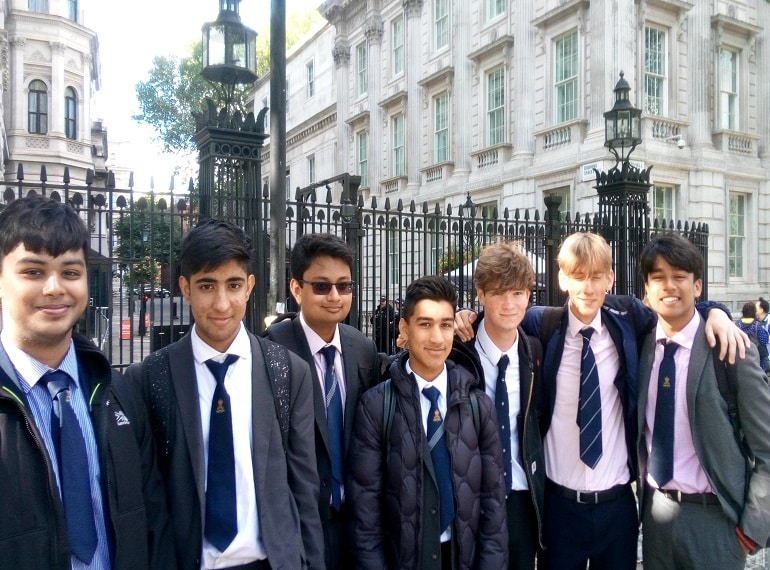
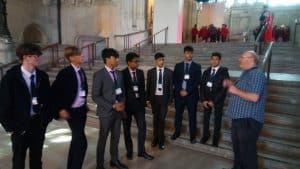 The weekday visit provided boys with the opportunity to tour the Central Lobby and committee rooms, as well as the public gallery of the House of Commons.
The weekday visit provided boys with the opportunity to tour the Central Lobby and committee rooms, as well as the public gallery of the House of Commons.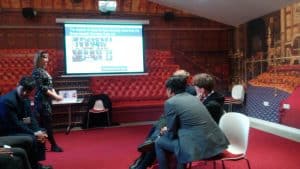 “The reality of Parliament was on show to the boys; outside Parliament, both sides in the Brexit debate were seeking to make their presence felt. In addition, about 50 members of staff from the recently crashed Thomas Cook travel firm were seeking to lobby MPs,” said Mr Hargadon.
“The reality of Parliament was on show to the boys; outside Parliament, both sides in the Brexit debate were seeking to make their presence felt. In addition, about 50 members of staff from the recently crashed Thomas Cook travel firm were seeking to lobby MPs,” said Mr Hargadon.
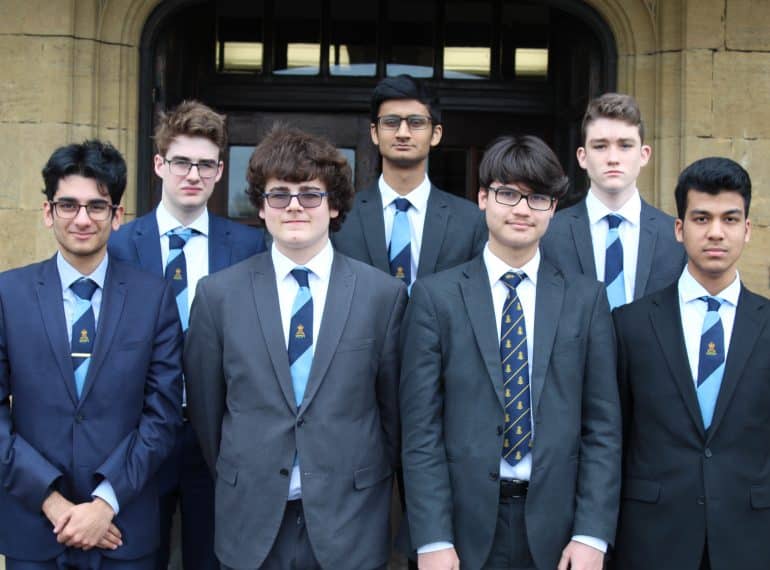
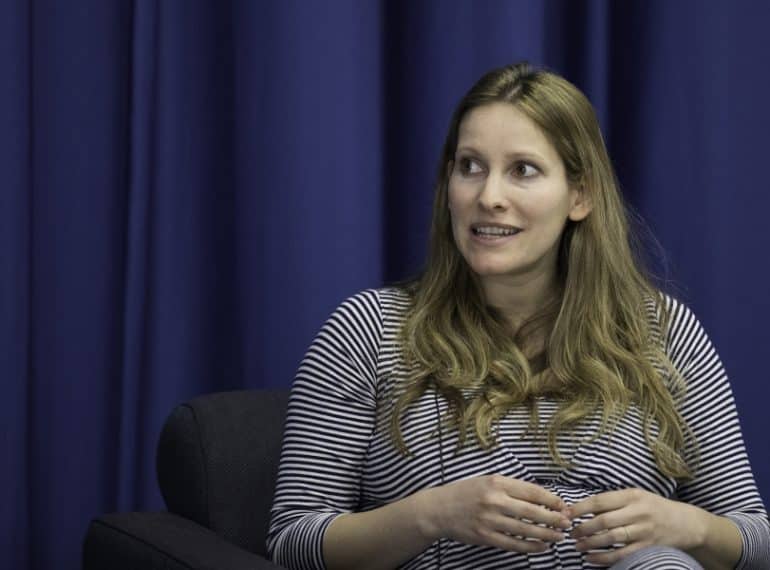
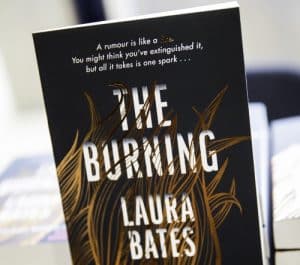 The founder of the Everyday Sexism Project covered topics including definitions of feminism, transgender matters, the approach feminists should adopt to cultures elsewhere and the advice that should be given to young men in relationships with women. She also discussed her new Young Adult fiction book, The Burning.
The founder of the Everyday Sexism Project covered topics including definitions of feminism, transgender matters, the approach feminists should adopt to cultures elsewhere and the advice that should be given to young men in relationships with women. She also discussed her new Young Adult fiction book, The Burning.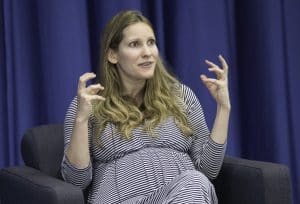 One of the QE sixth-formers, Rushil Shah, praised Ms Bates’ “well-articulated and convincing talk…which was not repetitive or droning at all,” adding that he had been impressed by her use of statistics. His classmate, Leo Kucera, praised her for addressing male stereotypes in society and for “confidently and accurately answering questions”.
One of the QE sixth-formers, Rushil Shah, praised Ms Bates’ “well-articulated and convincing talk…which was not repetitive or droning at all,” adding that he had been impressed by her use of statistics. His classmate, Leo Kucera, praised her for addressing male stereotypes in society and for “confidently and accurately answering questions”.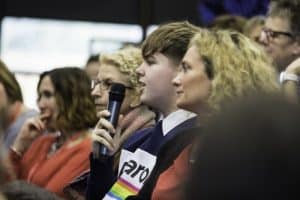 She stressed the need to discuss sexism and feminism with young men in relationships, saying that the suggestion sometimes made that this is a ‘minefield’ area is actually insulting to young men.
She stressed the need to discuss sexism and feminism with young men in relationships, saying that the suggestion sometimes made that this is a ‘minefield’ area is actually insulting to young men.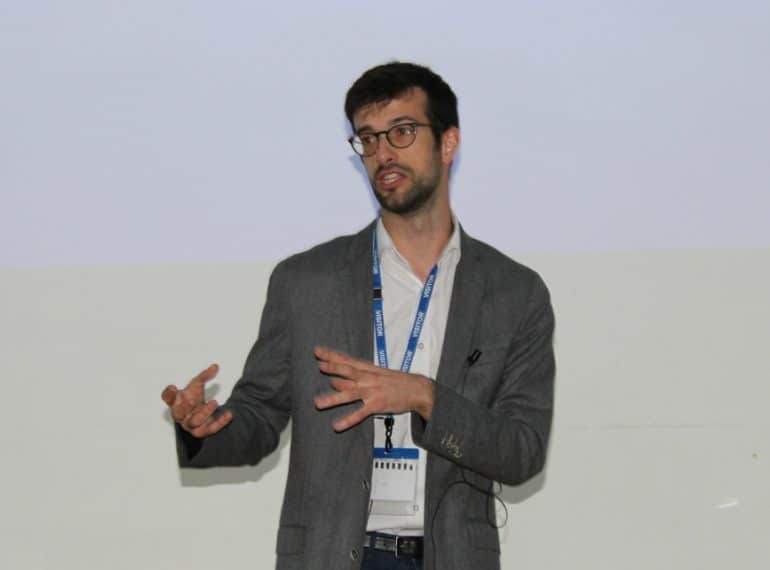
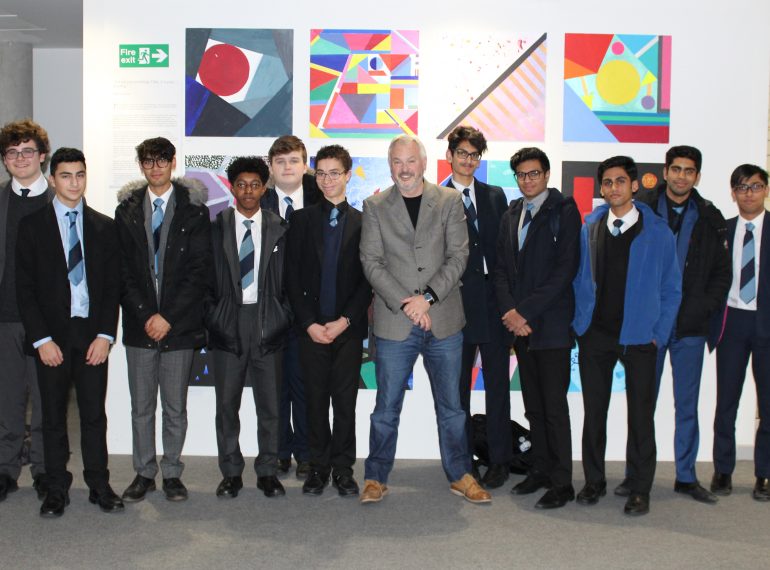
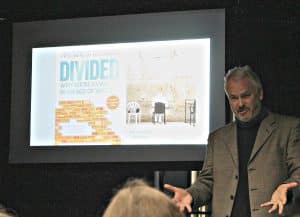 In an early-evening event, he spoke for 45 minutes on Divided: Why we’re living in an age of walls to an audience that included 11 QE boys, as well as QE’s Head of Geography, Emily Parry, Head of Politics, Liam Hargadon and Geography teachers Helen Davies and Nilisha Shah.
In an early-evening event, he spoke for 45 minutes on Divided: Why we’re living in an age of walls to an audience that included 11 QE boys, as well as QE’s Head of Geography, Emily Parry, Head of Politics, Liam Hargadon and Geography teachers Helen Davies and Nilisha Shah.